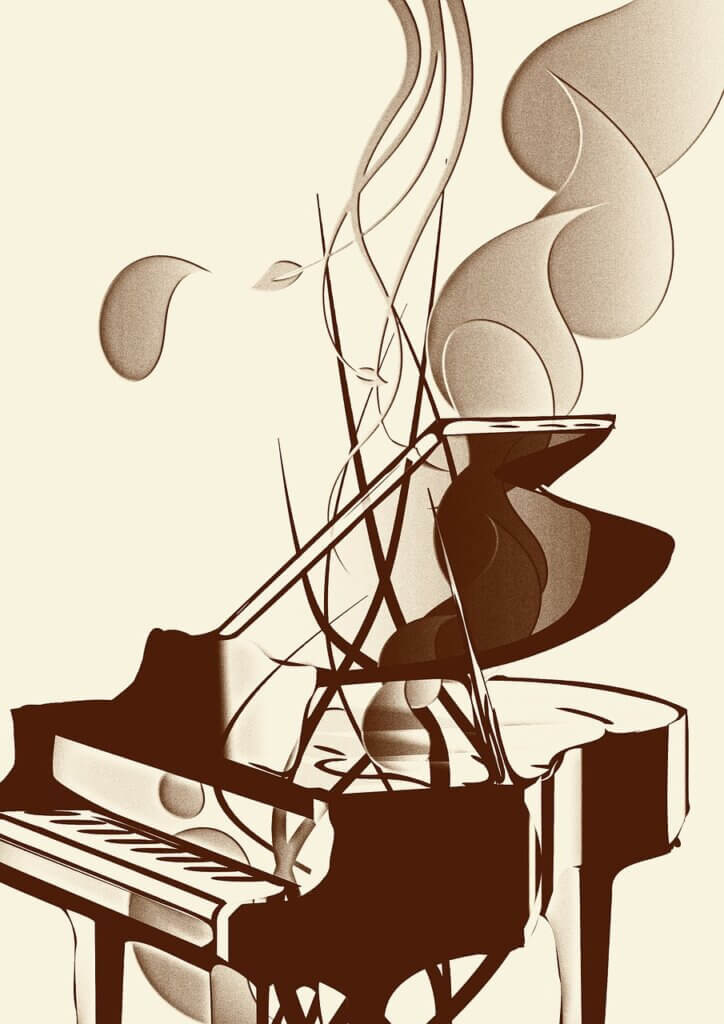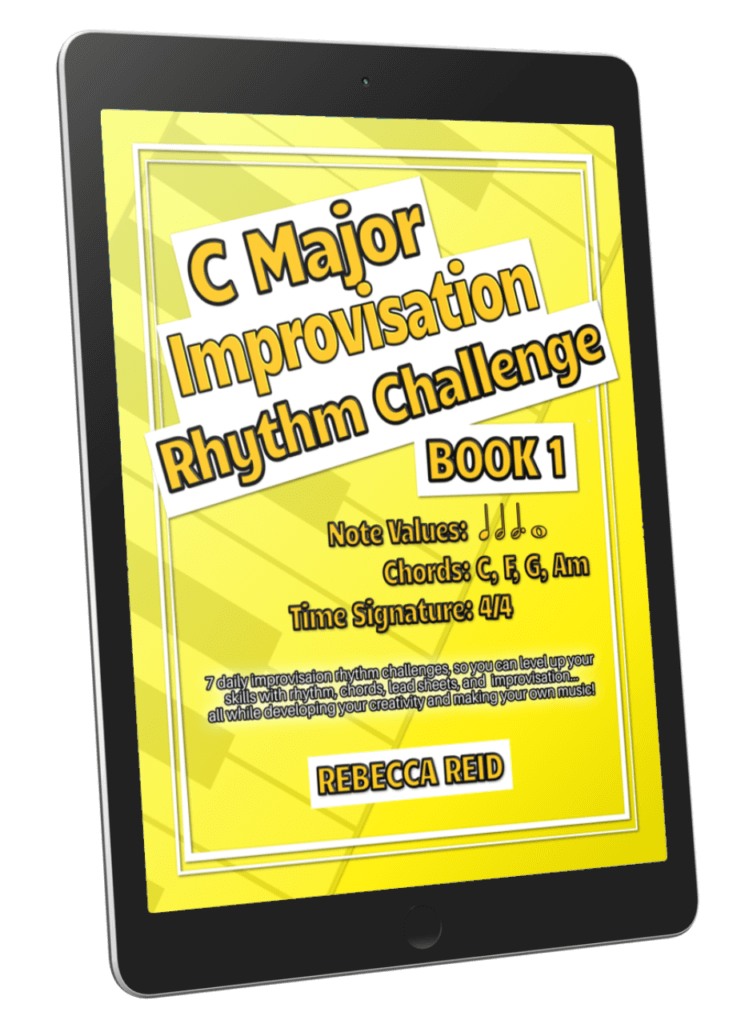How to Compose and Improvise Your Own Piano Music
Learning to create your own music can be intimidating at first. But once you learn the basics, it's much easier than you think… and so much fun!
Tips for Composing and Improvising
You don't need a lot of piano experience (or any at all!) in order to start composing and improvising your own piano music. But a few tips and a bit of inspiration will make it a lot easier to get started!
- 9 Easy Steps to Create Your First Piano Improvisation Right Now
Breaking down the process of improvising your own music into 9 simple steps. With specific suggestions about the easiest ways for a beginner to implement each step. No need to feel nervous about creating your own music anymore! - How to Create Spooky Halloween Piano Music Part 1
Tips (and a video tutorial!) showing you how you can create a simple improvisation that sounds super spooky! No experience needed! And even though it's simple, it will still sound impressive enough to wow your friends and family! - How to Create Spooky Halloween Piano Music Part 2
Have a bit more piano experience? This post (with video tutorial!) shows you how to create a somewhat more complex spooky improvisation for Halloween. - How to Create Spooky Halloween Piano Music Part 3
Tips about how you can take your Halloween improvisation (from Part 1 or Part 2) and add some extra flair to it. Up the spooky factor and have some fun putting your own creative spin on the music you create! - 5 Christmas Chord Progressions to Improve Your Improvisation Skills Any Day of the Year
So many pop songs are built from the same progression of 4 chords. And if creating a new song from an old chord progression works for them, it can work for you! Learn the chord progressions for 5 popular Christmas songs, and learn how you can use those chord progressions to create your own original improvisations. - 10 Simple Tips to Make Arranging Pop Songs for Piano Easier
If you're pretty confident at the piano already, and you love piano covers of pop songs, this post is for you! These tips will help you learn how to play pop songs by ear.
Not sure improvising and composing are for you?
Learn about some of the benefits of creating your own music!
- Why You Need to Compose Your Own Music — Especially If You Can't Read Music Yet
A lot of people think you can't compose or improvise your own music until you're already good at reading music and playing the piano. But that's not true! Composing your own music can actually help you learn to read music, so there's no need to wait! - 15 Reasons Why the Best Piano Lessons for Adults Should Focus on Improvisation
Most adult learners just want to read music. They tell me improvising their own music is too scary and makes them feel uncomfortable. But improvising your own music will benefit your piano learning in so many ways! - How Learning to Create My Own Music Changed My Life Forever
I had a love-hate relationship with piano as a teen. Learning to create my own music in my 20s changed everything!

Did you know composing exercises can help you learn to read music?
Designed especially for adult learners, my workbook, Learn to Read Your Own Music Book 1 (available on Amazon), teaches about the music staff, rhythm, pitches, guide notes, and the intervallic approach to reading music.
It includes sample musical excerpts as well as simple composition exercises to help you use your creativity to practice applying the knowledge you've gained.
With this practice, you'll be able to read music with much more confidence!
Want to learn even more about piano chords and how to use them creatively?
These 3 books have got you covered!
- Learn everything you need to know about triads.
- Learn all the music theory you need so you can use triads to create your own chord progressions and write your own music.
- Get a book of chord diagrams sorted diatonically so you never have to wonder which chords will sound good together.
And best of all, you don't need a fancy music degree to understand it all! These books break it all down and make chords and harmony understandable for the everyday learner.
Free Composing and Improvising Resources
Sign up for any of the resources below to join the VIP club and get your free music resources delivered straight to your inbox. VIP members receive emails jam-packed with useful piano tips.


